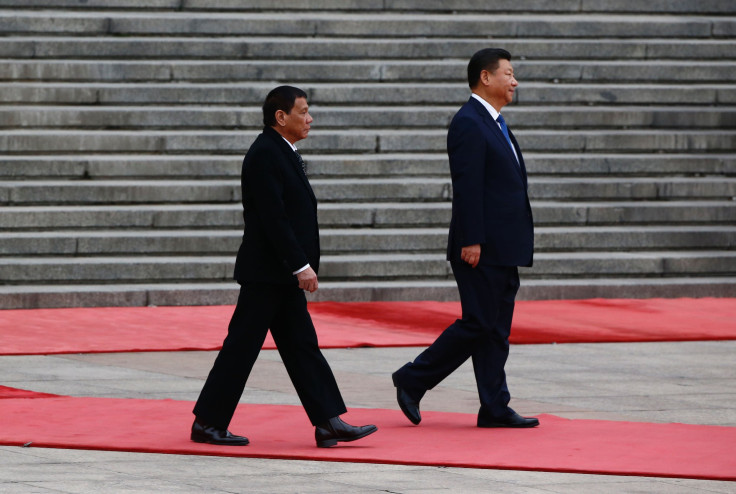China Building Leverage Over Duterte By Ignoring His Bloody Drug War

Philippine President Rodrigo Duterte and China’s leader Xi Jinping are like two people in a romantic relationship who will often overlook certain flaws in each other and only see the attractive features.
Both countries could benefit from Duterte’s willingness to ignore Beijing’s aggressive actions in the South China Sea while Xi is gaining some leverage by ignoring the international response to Duterte’s bloody and deadly war on drugs.
The Economist Intelligence Unit (EIU), a sister company of The Economist newspaper, said, "The Chinese government, which Mr. Duterte has embraced warmly, has been willing to ignore the war on drugs as the Philippines has scaled down its opposition to construction activity on contested islands in the South China Sea.”
International criticism of Duterte’s drug war is based upon claims of human rights abuses and that the police have “systematically targeted mostly poor and defenseless people across the country while planting 'evidence', recruiting paid killers, stealing from the people they kill and fabricating official incident reports." according to a 2017 report from Amnesty International.
A resolution to investigate the Philippine drug war was made by the United Nations Human Rights Council (UNHRC). Iceland proposed the resolution and it was signed by 18 countries including Australia and the U.K. but not the U.S. In response to the resolution, Duterte directed the suspension of negotiations of all loan and grant agreements with the governments of the countries that backed it.
China has its own problem with human rights abuses over its treatment of an estimated 1 million Uighur Muslims being held in internment camps in Xinjiang that the Chinese call “re-education facilities”. This, plus the current situation in Hong Kong, might be why Beijing wants to downplay any talk about human rights.
China is obviously the dominant country but a 2016 United Nations ruling awarded the Philippines sovereignty to oil and gas-rich waters inside the archipelago’s exclusive economic zone (EEZ).
Duterte has used the ruling to lure China into a more favorable deal. Beijing has offered to split any proceeds from any oil and gas discoveries 60 to 40 percent in favor of the Philippines and with billions of dollars at stake, Duterte may be inclined to ignore the ruling and “give in” to Xi’s wishes.
Despite all the outside criticism, Duterte remains popular with Filipinos getting a "very good" net satisfaction rating on one survey taken in June. The EIU said, "So far, his outspoken remarks and blunt rejection of overtures by states previously considered allies has not damaged his administration politically, nor has it had an obvious deleterious economic effect.”
© Copyright IBTimes 2025. All rights reserved.




















